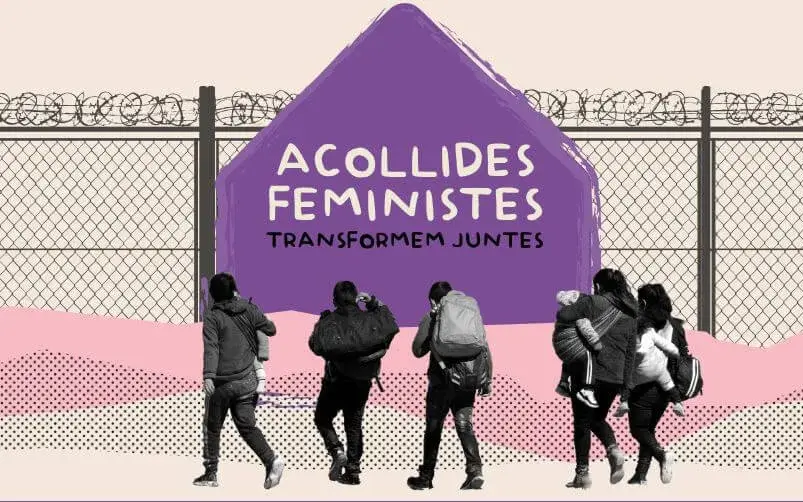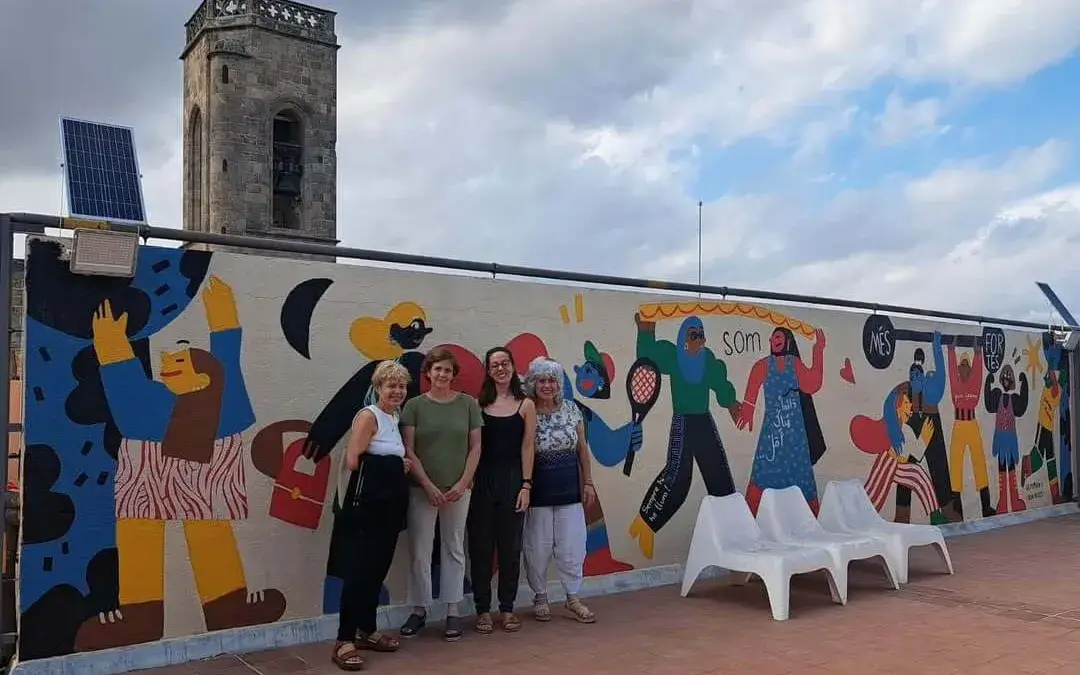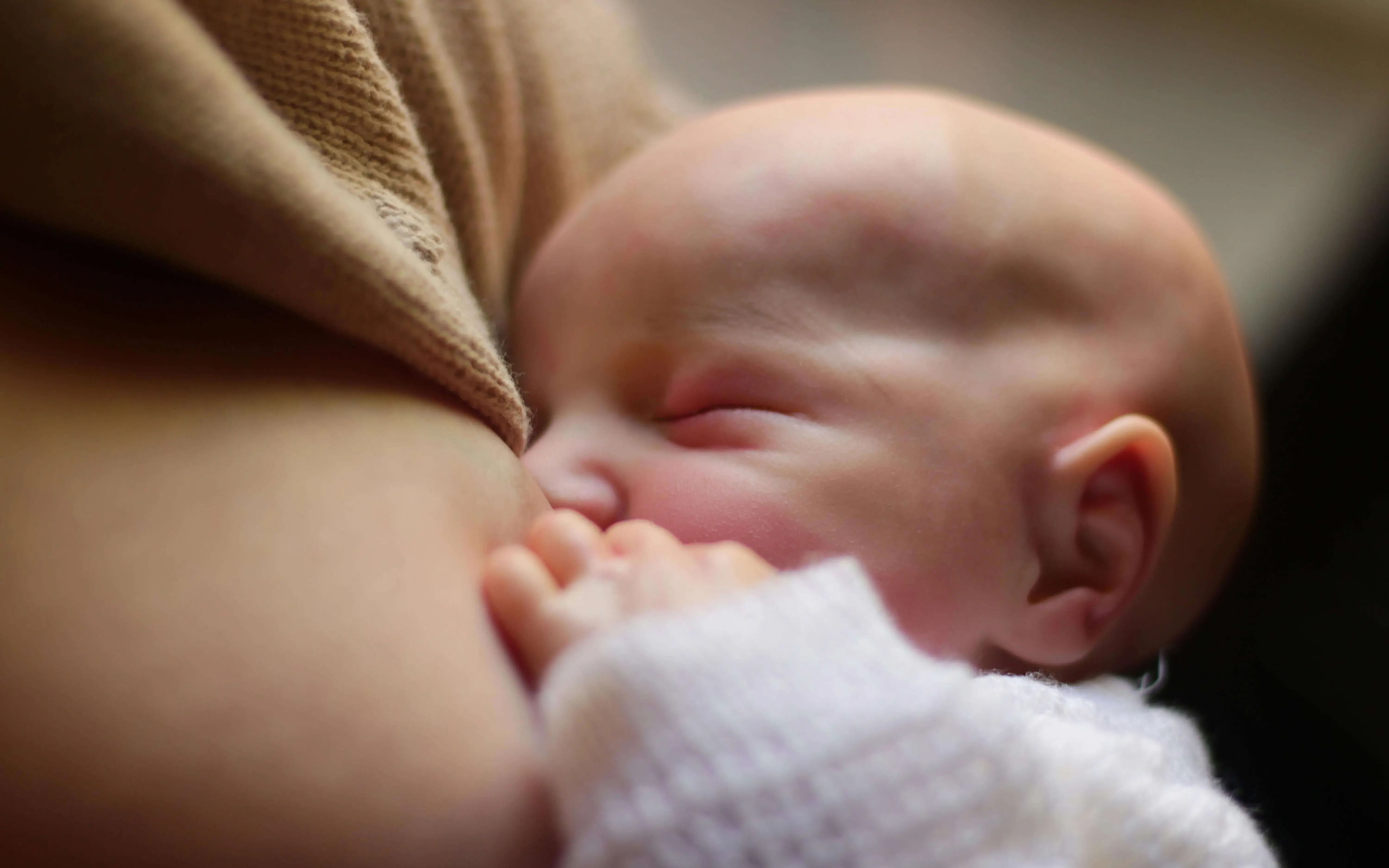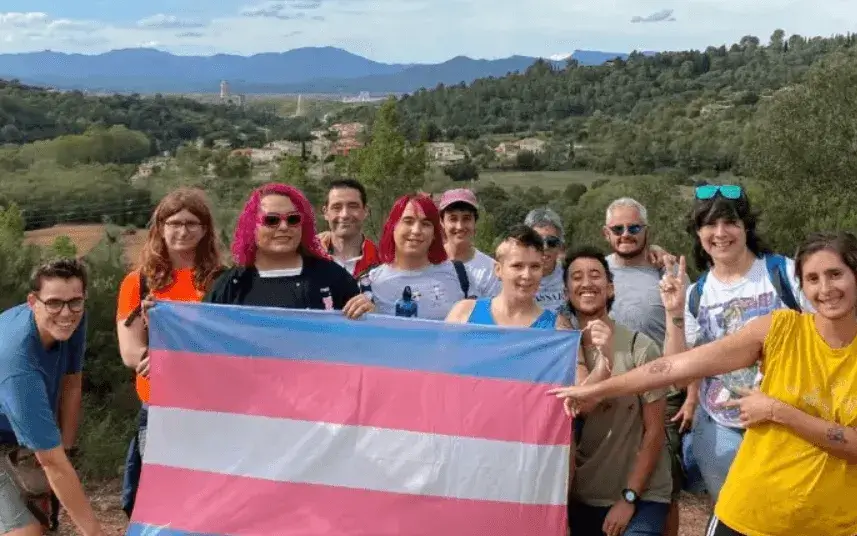The feminist motherhood expert and promoter of the Madres Disobedientes community accuses the socioeconomic system of imposing a model of motherhood that is impossible to assume.
Esther Vivas is a journalist and sociologist specialized in feminist maternity and agricultural and food models. He collaborates with the media and teaches at various postgraduate courses in Spain and Latin America, and has written and edited a dozen essays on critical consumption, food sovereignty and motherhood. She is the author of the book 'Mama desobedient. Una mirada feminista a la maternitat' ('Disobedient mother. A feminist look at motherhood'), published by ARA Llibres, currently with more than 25,000 copies sold in Spain and Latin America.
All her production is tinged with an ecological and feminist perspective, and she claims to approach motherhood also from this point of view, in order to walk towards a society where stereotypes around care and parenting are abandoned, turning motherhood into a public issue
With all your journey, why did you become interested in motherhood?
As a journalist and sociologist I have done various analyses, and generally always from a feminist perspective. I analyze alternative social movements and agri-food policies, but the subject of motherhood became interesting to me as a result of my own experience, once I became a mother in 2015.
And from there you created the 'Madres desobedientes' community?
The result of my work on motherhood, from a feminist perspective, which I started in 2015 culminated in 2019 with the publication of the book 'Disobedient mother: a feminist look at motherhood'. What I do here is to reflect on many of the aspects surrounding motherhood from a feminist and ecological perspective, highlighting the violence and discrimination that cross the maternal experience.
As a result of the publication of this book and my work also in particular on social networks, I subsequently promoted the Madres Desobedientes community, which is made up of more than 7,000 women from all over the world.
In this book you explain all the violence surrounding motherhood. In this sense, what does it mean to be a mother in today's society?
We live in a society that is hostile to maternal experience and care. Once you become a mother, your experience is crossed by multiple discriminations and also by violence. Some examples are found already in pregnancy or childbirth, as with obstetric violence, or, once the child has been born, in the short duration of maternity leaves, incompatible with the postpartum period and which has not been reviewed for more than 30 years
In addition, we mothers suffer constant judgment and questioning for being women and for being mothers, and this colors the maternal experience with a lot of fear and a lot of discomfort, while at the same time an ideal model of motherhood is imposed on us, where the perfect mother is the one who never makes a mistake and is in love with her child. But this collides with the real experience of mothers, and this is the perspective that must be claimed, with the aim of opening the door to fight and to be aware of this conflict in which the maternal experience develops, as well as to reconcile women with what it truly means to be a mother, to be tired, to be unable to do it anymore.
Do these violences have to do with the myths of romanticism and guilt surrounding motherhood?
Yes. Guilt is a constant in the maternal experience, because we live in a society that overturns the responsibility of care and upbringing on the mother. This implies a very important burden for women with children, when the reality is that this responsibility is false, because the future of a child has a lot to do with issues such as the social or economic context, which do not depend on the mother. The patriarchal society in which we live reduces the figure of the woman to that of mother, and above all to a certain model of mother.
We mothers are pushed to mirror ourselves in this ideal model of motherhood, where we have to be not only a self-sacrificing mother, but also, and at the same time, a super-mom who reaches everything, always available for work. The system imposes an impossible model, it wants us to be mothers as if we didn't have paid jobs, and workers as if we didn't have children. And here it is important, as I said, to verify this reality, because as mothers we must understand that the problem is not in us, but in the model of motherhood that has been imposed on us, and that being a good mother also means not achieving everything, making mistakes and failing.
"The system imposes a model that is impossible to assume, it wants us to be mothers as if we don't have paid jobs, and workers as if we don't have children."
And this is where feminist motherhood comes in.
I think that what is crucial is to claim that motherhood is a feminist issue. Motherhood is often considered to be the property of the reactionary and conservative sectors that are against the right to abortion. But being a mother, and being able to be so in a free and desired way, means that as women we have the right to have an abortion. Because to be a mother and to be able to enjoy motherhood implies claiming motherhood from a feminist and emancipatory position.
Thus, from feminism, it is necessary to claim a motherhood opposed to the patriarchal motherhood that has been imposed on us, to end the mandate to be a mother and to be a certain model of mother in which mothers do not have a life of their own. Motherhood should involve being able to decide about my body, about my pregnancy, my birth, my breastfeeding, my parenting. And that is deeply feminist. At the same time, it is necessary to claim that motherhood is not only a responsibility of the mother, but is a responsibility of the couple, if there is one, and collectively.
In fact, in your analysis you go beyond the couple, you talk about a common responsibility.
Yes, motherhood should be considered a collective responsibility and with public visibility. It is from this point of view that I think it is necessary to claim a feminist key motherhood, with guarantees and rights, that is not crossed by violence and discrimination, in order to achieve a fuller experience, in a social and economic context that welcomes motherhood, that does not hinder it.
You have also mentioned on occasion that motherhood reveals links between biology and culture. could you explain?
Motherhood is a biocultural experience. It has a biological and cultural character. Motherhood is a biological experience if it takes place in the body and involves pregnancy, childbirth, postpartum, but motherhood goes beyond biology. Proof of this is that there are maternity homes that do not go through these experiences, as is the case with adoptive or lesbian maternity homes, in which one mother gives birth and the other does not.
The biological nature of motherhood has been used by the patriarchy to impose on us the mandate to be a mother. But this does not mean that from a feminist point of view we also claim the biology of motherhood, to claim our right to go through this experience if we so wish, always keeping in mind that, in addition, the fact of being a mother goes far beyond biology.
Finally, how to integrate motherhood, feminism and ecology?
From an ecological point of view, in a context of climate emergency and exploitation of natural resources, an ecosystem is generated that is contrary to human fertility. There are more and more women and men with fertility problems linked to socio-environmental causes.
In the same way that the increasing exposure to environmental toxins leads to the loss of fertility in animal species, it also happens to people. We must understand, therefore, that betting on life and an increase in birth rates is necessary to deal with the climate emergency. Thus, fertility problems linked to the environmental emergency are added to the obstacles to motherhood that come from the socio-economic process and labor instability. Therefore, what is needed to promote birth and motherhood is that there must be policies that fully address both the climate crisis and the social and economic crisis.







Add new comment